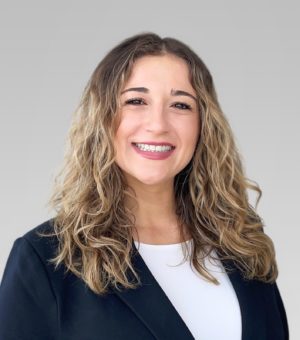
Minnesota Department of Health Leads Cross-County Collaboration to Support Families Impacted by Incarceration
As one of the first points of contact in the criminal justice system, sheriff’s offices and their correctional facilities are key players in addressing the immediate needs of families impacted by incarceration and promoting family connections. For jails to meet the needs of families in the community, coordinating across county lines and learning from peers are essential. However, jail systems are often siloed, and collaboration between jails in different counties is rare. In Minnesota, the state department of health stepped in to address this gap.
With funding from the Office of Juvenile Justice and Delinquency Prevention through the Second Chance Act Addressing the Needs of Incarcerated Parents and Their Minor Children grant program, the Minnesota Department of Health launched the Expanding Model Practices in Jails and Community Corrections to Support Children of Incarcerated Parents project in 2020. The Minnesota Department of Health used data from surveys conducted with incarcerated parents and students across the state since 2013 to inform their work. Taking a public health approach has led the project partners to center the impacts of parental incarceration on children’s academic outcomes, mental health outcomes, substance use, and health and health care utilization.
Project partners have worked through the National Institute of Corrections’ Model Practices for Parents in Prisons and Jails guide to promote family communication and relationships through policy and practice. A crucial undertaking has been training 44 correctional staff and community partners to date in the Parenting Inside Out curriculum and supporting jurisdictions with its implementation. Where individual jails might not have the resources and infrastructure to launch and sustain a robust evidence-based parenting program alone, the Minnesota Department of Health offers a supportive solution.
One of the key elements of the project is the Minnesota Model Jail Practices Learning Community, a quarterly in-person meeting of key partners from six counties that includes staff representatives from sheriff’s offices, jails, health departments, researchers, and other community stakeholders. The learning community is a space for peer learning, information sharing, and problem solving in real time.
“Successful implementation of these model practices requires finding the sweet spot between seeing another jail to emulate and finding a locally tailored solution that will work for a single facility,” said Rebecca Shlafer of the University of Minnesota.
To learn more about the partnership, the CSG Justice Center attended this quarter’s learning community meeting, hosted by the Stearns County Sheriff’s Office in March. A ritual of the meeting is what’s known as “site sharing,” where the six jail partners share successes and challenges. For example, one county’s sheriff’s office shared a challenge with supporting families who live in a different county, which led to a group problem-solving conversation about referring services to that county, providing support virtually, and connecting with family home visiting services that can be offered cross-county. At the group’s request, CSG Justice Center staff presented on best practices for family communication to support family reunification.
The learning community is also a space for resource development and sharing. In March, a Minnesota Department of Education representative presented on the state’s Early Learning Scholarships Program to help pay for the cost of childcare. The Minnesota Department of Health and the University of Minnesota leverage partnerships and connections across the state to help jails connect families to key resources and elevate the needs of children of incarcerated parents so that systems begin to prioritize this population. For example, the Minnesota Department of Education has since created a new pilot program to include children who have experienced parental incarceration as a priority category in the Early Learning Scholarships Program.
The six participating jails are eager to continue the collaborative partnership and expand their work statewide.
“Being a part of the learning community has given me support to be proactive” with efforts to support children of incarcerated parents, noted Captain Macey Tesmer, work release and staff development captain at the Olmsted County Sheriff’s Office. Program participants have taken notice of the partners’ efforts as well.
“I’m grateful the state has taken on a supportive stance,” said one Parenting Inside Out program participant in Sherburne County. “Public awareness of the benefits of parent/child bonds through adversity and social tragedies our world is dealing with could influence a [decline] in recidivism and promote overall healthier families.”
To learn more, check out this video from the Minnesota Department of Health and recent Minnesota Public Radio coverage highlighting Ramsey County.
About the author


New Hampshire Department of Corrections Commissioner Helen Hanks presents at the Medicaid and Corrections Policy Academy in-person meeting.
Read MoreThe Council of State Governments (CSG) Justice Center has launched the Collaborating for Youth and Public Safety Initiative…
Read MoreA bipartisan group of 88 lawmakers, led by Representatives Carol Miller (R-WV) and Danny Davis (D-IL), wrote a…
Read More Meet the Medicaid and Corrections Policy Academy Mentor States
Meet the Medicaid and Corrections Policy Academy Mentor States
New Hampshire Department of Corrections Commissioner Helen Hanks presents at the Medicaid…
Read More Six States Commit to Improving Statewide Strategies to Address Youth Crime, Violence and Behavioral Health
Six States Commit to Improving Statewide Strategies to Address Youth Crime, Violence and Behavioral Health
The Council of State Governments (CSG) Justice Center has launched the Collaborating…
Read More Bipartisan Group of 88 Lawmakers Push for Continued Funding for Reentry and Recidivism Programs
Bipartisan Group of 88 Lawmakers Push for Continued Funding for Reentry and Recidivism Programs
A bipartisan group of 88 lawmakers, led by Representatives Carol Miller (R-WV)…
Read More









